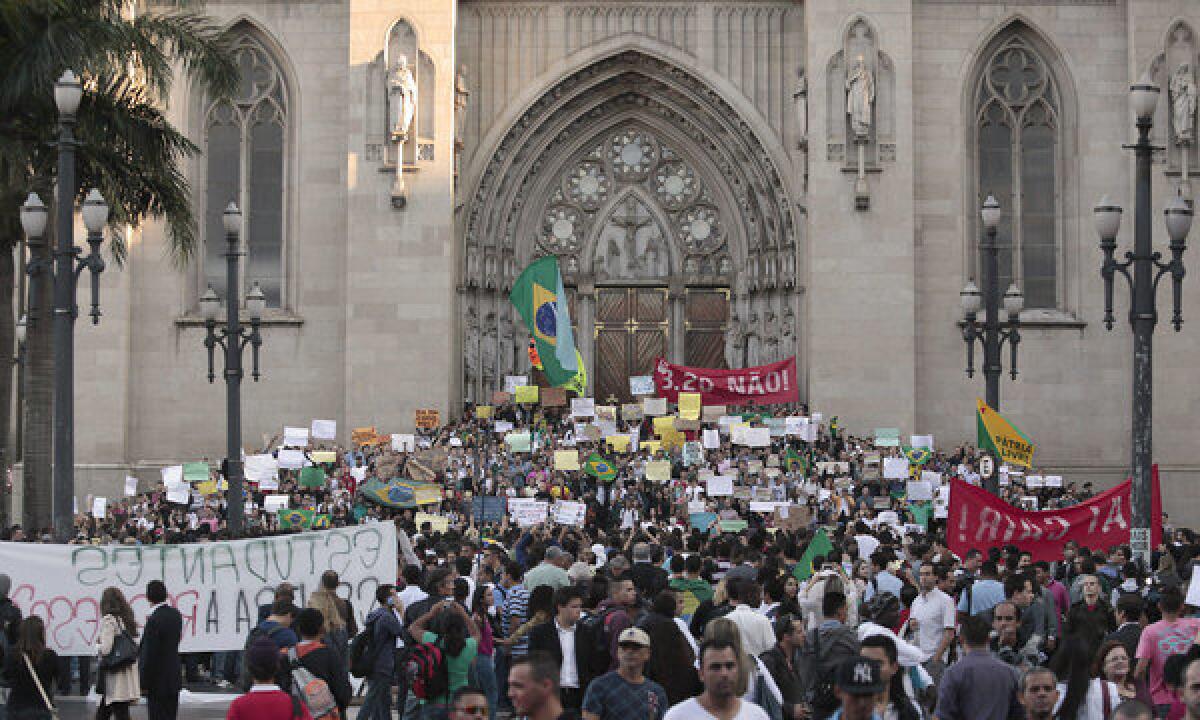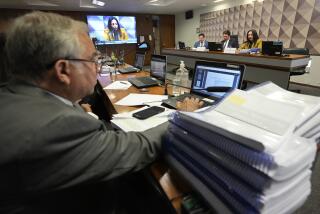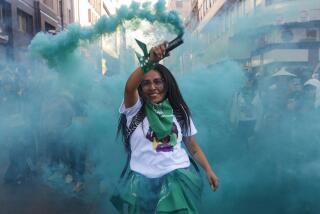Authorities in Brazil reduce bus fares in response to protests

SAO PAULO, Brazil -- A number of cities in Brazil announced reductions in public bus fares Tuesday as authorities grappled with some of the largest street protests in years.
Another major rally was planned in Sao Paulo for Tuesday evening, after tens of thousands demonstrated in a dozen cities the previous day.
The protests began last week in response to rising transportation costs but have grown to express broader dissatisfaction with government services and the police.
PHOTOS: Brazilians protest rising public transport cost
President Dilma Rousseff said Tuesday that Brazil was proud of the protesters.
“Peaceful protests are legitimate and are proper for a democracy,” she said in Brasilia. “The voices on the streets want more -- more citizenship, more healthcare, more education, more transportation and more opportunities. I want to guarantee that my government also wants more.”
She then left for Sao Paulo to discuss the demonstrations with former President Luiz Inacio Lula da Silva, according to local news reports.
Support for the Free Fare Movement, which launched the demonstrations, has grown since police fired rubber bullets and tear gas at marchers in Sao Paulo on Thursday and assaulted some participants and bystanders.
Over the next few days, groups protesting government investments made in preparation for the 2014 soccer World Cup, rather than in areas such as healthcare and education, also held demonstrations and clashed with police.
In response Tuesday, the governments of Porto Alegre, Cuiaba, Recife and Joao Pessoa announced bus fare cuts of 2 cents to 5 cents. The mayor of Sao Paulo, Fernando Haddad, said he might also be willing to consider such a reduction if that is what the population wants -- and if he can raise the funds.
Protesters in Sao Paulo vowed to stay in the streets until a recent 10-cent fare increase was reversed.
About 180,000 people indicated on Facebook that they planned to attend the protest set for Tuesday evening. The social networking site has been one of the main organizing tools for the rallies.
ALSO:
U.S. says Taliban agrees to Afghanistan peace talks
Arab village latest target of political vandalism in Israel
Russian lawmakers pass ban on adoption tied to gay foreign couples
More to Read
Start your day right
Sign up for Essential California for news, features and recommendations from the L.A. Times and beyond in your inbox six days a week.
You may occasionally receive promotional content from the Los Angeles Times.






